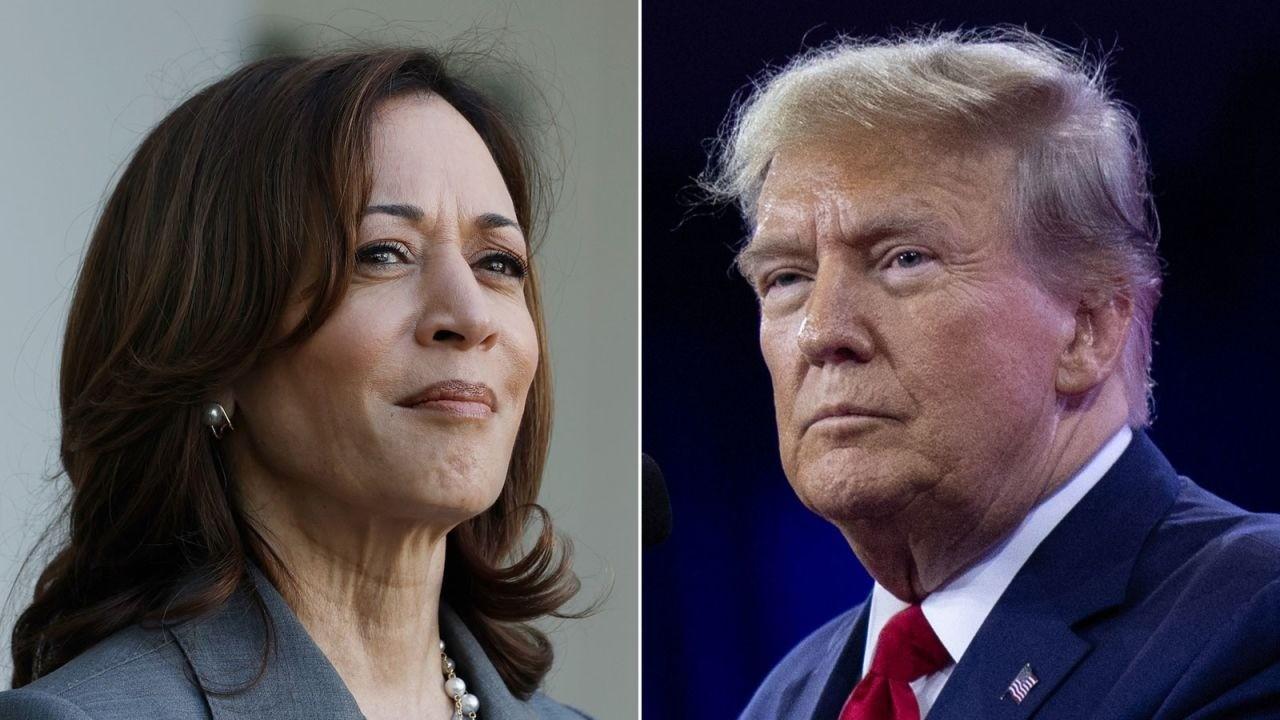“This is quite a blue town,” said the CIO in DC. I had asked him about the post-election vibe. “Most of the city is kind of mourning, and a narrower group is euphoric.” We were discussing the profound change that has already begun to unfold post-election. The range of unorthodox and anti-establishment presidential appointments, the many possible consequences, economic, military, geopolitical. DOGE. “So, I worked in government for quite a few years,” he said. “And let me tell you, 30% of the people do 100% of the work.”
Overall: “China is ready to work with the new US administration to maintain communication, expand cooperation and manage differences, so as to strive for a steady transition of the China-US relationship for the benefit of the two peoples,” said Xi Jinping yesterday, meeting with Biden in Peru. China’s stock market had fallen 1.2% priced in dollars since November 4th, the day before America’s election. The S&P 500 had gained 2.8% in that time. The Euro Stoxx 50 index was -4.3% when priced in dollars, the economic chasm widening, inexorably. The UK stock market and the MSCI Emerging index both fell 4%. “If we treat each other as an adversary or an enemy, viciously compete with and harm each other, the Sino-US relations will encounter twists and turns or even regression,” warned Xi, his economy struggling, its real estate crisis and debt burden suffocating the kind of growth he needs to maintain social cohesion. And beneath it all, China’s inescapable demographic collapse grinded onward, such things are mathematically impossible to reverse. Xi had watched in a cold sweat as America’s president-elect announced his new team, China hawks, trade hawks, anti-establishment players, people committed to challenging orthodoxy in every area of government; appointments unlike anything seen in modern American history. And the policy platform for the world’s largest economy appeared to be designed to fuel a domestic boom, which if achieved would put further distance between the US, China, Europe, in fact every serious nation. This increasingly evident contrast would spark further unrest amongst the citizens in these same nations whose leaders were failing them in so many ways. “China’s goal of a stable, healthy and sustainable China-US relationship remains unchanged,” declared Xi, outwardly calm, statesmanlike, but inside praying that somehow, someway, this would be the time that America’s remarkable and chaotic propensity for producing prosperity, revolution within, reinvention, would finally fail.
Week-in-Review: Mon: China fixes renminbi at weakest level in more than a year. China’s October inflation disappoints, highlighting a lack of demand recovery. Crypto market tops $3tn for first time since 2021. French President Macron and UK PM Starmer meet in Paris, ahead of Armistice day, pledging unwavering support to Ukraine. Israel says progress is being made in US-mediated efforts to achieve a cease-fire in Lebanon. China M2 7.5% (7.0%e), S&P +0.1%; Tue: Fed’s Waller praises stablecoins’ potential benefits to eliminate inefficiencies in the financial system. Beijing calls for ‘enhanced’ US-China co-operation on climate change. BoE Chief Economist says he is wary of sticky wage growth. Musk and Ramaswamy to head Trump’s ‘efficiency’ department (D.O.G.E). Pentagon leaker sentenced to 15 years in prison. Archbishop of Canterbury, most senior cleric in the Church of England, resigns over child abuse scandal. US NFIB Small Business Optimism Idx 93.7 (92e), German ZEW survey current conditions -91.4 (-84.4e) / expectations 7.4 (13.3e), UK wage growth+4.8% (4.7%e), CPI YoY Germany 2.0% as exp / Hungary 3.2% (3.5%e) / India 6.21% (5.90%e), Ret sales Brazil 2.1% (3.7%e) / South Korea 2.7% (2.6%e), Japan PPI 3.4% (2.9%e), S&P -0.3%; Wed: Trump secures control of Congress as Republicans win House majority. John Thune wins Senate leadership against Trump loyalist Rick Scott. Trump picks Marco Rubio as secretary of state and Florida congressman Gaetz as attorney general. Brazil’s supreme court evacuated following nearby explosions. Bitcoin rises above $90,000 for the first time. US CPI 2.6% as exp, Russia GDP 3.1% (3.0%e) / CPI 8.54% (8.60%e), S&P +0.0%; Thur: Chair Powell says he is in ‘no hurry’ to cut rates and expects a ‘bumpy’ path down for inflation. China borrows US dollars on 3 and 5y debt at comparable cost to the US government. ECB minutes highlight risk that current levels of interest rates could be harming real economy. RFK appointed to run Health Department. FTC to launch an investigation into anti-competitive practices at Microsoft’s cloud computing business. Meta fined nearly €800mn for breaking EU law over classified ads. Russian forces briefly break Kyiv’s frontline defenses by entering the town of Kupiansk. Dollar approaches 2-year high. US money market funds hit an all-time high (over $7trln). US Initial jobless claims 217k (220k e) / cont claims 1873k as exp, Japan GDP ann 0.9% (0.7%e) / deflators 2.5% (2.7%e), Eurozone GDP 0.9% as exp, US PPI 0.2% as exp, China retail sales 4.8% (3.8%e) / IP 5.3% (5.6%e), S&P -0.6%; Fri: German Chancellor Scholz speaks with President Putin for the first time in nearly two years, urging him engage in talks to end the war. Russia imposes temporary restrictions on exports of enriched uranium to the US. Russia’s Gazprom to halt gas supply to Austria. New home prices in China fall despite government stimulus. Fed warns that delinquency rate for loans to commercial real estate is now at highest level in a decade. UK IP -1.8% (-1.1%e) / mfg prod -0.7% (0.0%e), UK GDP 1.0% as exp, US Empire mfg 31.2 (0e), US IP MoM -0.3% (-0.4%e), S&P -1.3%; Sat: Biden and Xi meeting in Peru.
Weekly Close: S&P 500 -2.1% and VIX +1.20 at +16.14. Nikkei -2.2%, Shanghai -3.5%, Euro Stoxx -0.7%, Bovespa flat, MSCI World -2.1%, and MSCI Emerging -4.5%. USD rose +3.3% vs South Africa, +2.5% vs Russia, +2.4% vs Sterling, +1.9% vs Australia, +1.7% vs Euro, +1.4% vs Sweden, +1.3% vs Canada, +1.2% vs Indonesia, +1.1% vs Yen, +1.1% vs Brazil, +0.9% vs Mexico, +0.8% vs Chile, +0.6% vs China, +0.2% vs Turkey, and flat vs India. USD fell -13.7% vs Bitcoin, and -3.4% vs Ethereum. Gold -4.6%, Silver -3.2%, Oil -4.8%, Copper -5.6%, Iron Ore -4.1%, Corn -2.0%. 10yr Inflation Breakevens (EU -4bps at 1.85%, US -2bps at 2.34%, JP +11bps at 1.37%, and UK -4bps at 3.52%). 2yr Notes +5bps at 4.31% and 10yr Notes +14bps at 4.44%.
Market Moves Since Nov 4th (pre-election): S&P 500 +2.8% and VIX -5.84 at +16.14. Nikkei +1.5%, Shanghai +0.6%, Euro Stoxx -1.2%, Bovespa -2.1%, MSCI World +1.5%, and MSCI Emerging -4.0%. USD rose +3.8% vs South Africa, +3.2% vs Euro, +2.7% vs Sterling, +2.6% vs Chile, +2.4% vs Sweden, +1.9% vs Australia, +1.8% vs China, +1.4% vs Yen, +1.4% vs Canada, +1.2% vs Mexico, +1.1% vs Russia, +0.6% vs Indonesia, +0.3% vs India, +0.3% vs Turkey, and +0.2% vs Brazil. USD fell -22.6% vs Bitcoin, and -19.5% vs Ethereum. Gold -6.4%, Silver -6.7%, Oil -6.2%, Copper -8.1%, Iron Ore -1.7%, Corn +1.2%. 10yr Inflation Breakevens (EU -1bp at 1.85%, US +6bps at 2.34%, JP +12bps at 1.37%, and UK -6bps at 3.52%). 2yr Notes +14bps at 4.31% and 10yr Notes +15bps at 4.44%.
2024 Year-to-Date Equity Index Close (high to low): Argentina +80% priced in US dollars (+122.3% priced in pesos), NASDAQ +24.4% priced in dollars, S&P 500 +23.1% priced in dollars, Taiwan +19.4% priced in US dollars (+26.8% in Taiwan dollars), MSCI World +17.1% in US dollars, Israel +16.2% in dollars (+20.9% in shekels), Hungary +14.6% (+28.3%), HK +14.3% (+14%), Russell +13.7% in dollars, Singapore +13.6% (+15.6%), Malaysia +12.3% (+9.5%), Canada +11.4% (+18.8%), Czech Republic +10.5% (+18.5%), China +10% (+12%), Spain +9.8% (+15.2%), Germany +9.3% (+14.7%), Turkey +7.8% (+25.7%), South Africa +7.8% (+7.5%), Italy +7.4% (+12.7%), Belgium +7% (+12.2%), India +6.7% (+8.3%), Ireland +5.7% (+10.9%), Japan +5.4% (+15.5%), Netherlands +4.5% (+9.6%), Norway +3.6% (+13.5%), Greece +3.5% (+8.6%), Australia +3.2% (+9.1%), UK +3.2% (+4.3%), Euro Stoxx 50 +1.1% (+6%), Thailand +0% (+1.9%), New Zealand -0.3% (+7.8%), Switzerland -1.2% (+4.4%), Austria -1.3% (+3.5%), UAE -1.4% (-1.4%), Saudi Arabia -1.6% (-1.5%), Colombia -2% (+12.6%), Philippines -2.4% (+3.5%), Poland -3% (+1.1%), Sweden -4.1% (+4.8%), Indonesia -4.7% (-1.5%), Denmark -4.7% (0%), Chile -5.3% (+5.3%), France -8.1% (-3.6%), Finland -8.6% (-4.2%), Portugal -13.9% (-9.7%), Korea -16% (-9%), Brazil -19.9% (-4.8%), Mexico -26.8% (-12.1%).
The Chairman: “Three key things can be done immediately, with no need for legislation,” said the Chairman, election results behind us, tailwinds for crypto building. “Number one, SAB 121 can be repealed as soon as the new administration takes over,” he continued, referring to the SEC’s 2022 staff accounting bulletin no. 121, which unnecessarily slowed the industry, pushing investors and innovators offshore. “Number two, we should see the SEC and the banking regulators coordinate on stablecoin guidance, which will bring stablecoin into the regulatory mainstream, allowing for its adoption throughout the banking system and our capital markets.”
The Chairman II: “Bringing dollar stablecoin into the core of the financial system, will accelerate the buildout of crypto rails across the US and global financial sector,” said the Chairman. “This is in the US national interest as it will accelerate the usage of dollar stablecoin at home and abroad, which should expand the usage of the dollar internationally, extending dollar dominance.” I nodded. The opposition by the Biden administration to providing sensible stablecoin guidance made no economic or geopolitical sense. But no matter, those policies will soon be behind us.
The Chairman III: “As stablecoin is adopted by the banking system, the infrastructure necessary for the tokenization of other assets will be in place,” explained the Chairman. “This will invite innovation in our financial markets; reducing transaction costs, increasing speeds, improving security, and providing transparency to counterparties and regulators which in turn will enhance financial stability.” The path to blockchain replacing legacy financial infrastructure is opening. “And there’s one more thing that is overdue and should happen quickly,” he said.
The Chairman IV: “Number three is that clear guidance from the SEC and CFTC should be given to the trading of tokens in the secondary markets,” said the Chairman. “For example, providing guidance that tokens that have been outstanding for two years with no new issuance are presumptively good to trade, as opposed to the opposite, is the kind of thing that can be done without the need for legislation.” I smiled. Common sense prevailing. “We get those things done quickly and responsibly, including addressing anti-money laundering and other illicit finance issues, and we unlock US entrepreneurial energy in this exciting new field. It’s great for our innovators, for finance, and for America.”
The Oracle: “We will soon see something economically unlike anything you’ve experienced in your career,” said the Oracle, seated on a hot rock, serene. “A comprehensive set of policies designed to dramatically boost productivity and growth across the US economy.” I had traveled far to see the Oracle, the political changes he had foreseen many months ago, now manifest. “The unlock of energy resources, the buildout of AI infrastructure to support rapid advances, the slashing of government waste and headcount to make way for private sector growth. Tax cuts.”
The Oracle II: “Fed rate cuts have been a mistake given what is on the horizon,” said the Oracle, his gaze unfocused, taking in the infinite horizon. “With rising productivity growth, the demand for capital will rise, the economy will boom, and energy prices will remain firm even as supplies rise. Pressure on interest rates will be upward, not downward.” And the Oracle closed his eyes gently. “I see real GDP jumping towards a 4% rate in the coming cycle, and 25-30% late-1990s equity market gains for the next few years. I’ve never seen such a bullish future.”
Anecdote: “I’d been invited to a dinner with senior Russian officials,” I told a CIO on Friday, sitting in DC, sharing a story from London in 1992. I was a Lehman prop trader back then, and the West was in a nasty recession that felt inescapable, they often do. The savings and loan crisis had taken its toll. London cabbies talked of the need for another World War to pull us out of our latest civilizational tailspin. I was bearish too, everyone was. “Two of the Russians were in their 60’s, and their juniors were around my age.” We sat at an unfinished wooden table, each of us with a shot glass, bottle after bottle. “The guys my age became belligerent as we all got drunk. They started saying Russia could nuke America off the face of the earth. I thought we might get into a brawl, right there in the restaurant, not the evening I expected.” I had been excited to get the dinner invite, which was kind of random, life often is. The Berlin wall had fallen in 1989, and I’d never met former Soviet officials. They wore cheap suits, watches, glasses. Proud but poor, frustrated. “At the mention of nuclear Armageddon, the most senior official silenced his juniors abruptly, and spoke to us all.” A teacher to his pupils, naïve children. “The Russian said that over the entirety of his adult life, his career, the Soviets often felt they’d gained the upper hand, the US would be beaten, would finally succumb. But each time, somehow, unexpectedly, remarkably, the Americans reinvented themselves, figured out something new, and ended up stronger than before. He told us to never underestimate America.” And I haven’t. “I think Trump’s election is going to bring about many remarkable changes. It’ll be more than the pendulum swinging back, it’ll be a reinvention of sorts, a wild American experiment,” I told the CIO, feeling at once unsettled, hopeful, nervous. Anticipating real volatility.
Good luck out there,
Eric Peters
Chief Investment Officer
One River Asset Management
Disclaimer: All characters and events contained herein are entirely fictional. Even those things that appear based on real people and actual events are products of the author’s imagination. Any similarity is merely coincidental. The numbers are unreliable. The statistics too. Consequently, this message does not contain any investment recommendation, advice, or solicitation of any sort for any product, fund or service. The views expressed are strictly those of the author, even if often times they are not actually views held by the author, or directly contradict those views genuinely held by the author. And the views may certainly differ from those of any firm or person that the author may advise, converse with, or otherwise be associated with. Lastly, any inappropriate language, innuendo or dark humor contained herein is not specifically intended to offend the reader. And besides, nothing could possibly be more offensive than the real-life actions of the inept policy makers, corrupt elected leaders and short, paranoid dictators who infest our little planet. Yet we suffer their indignities every day. Oh yeah, past performance is not indicative of future returns.





